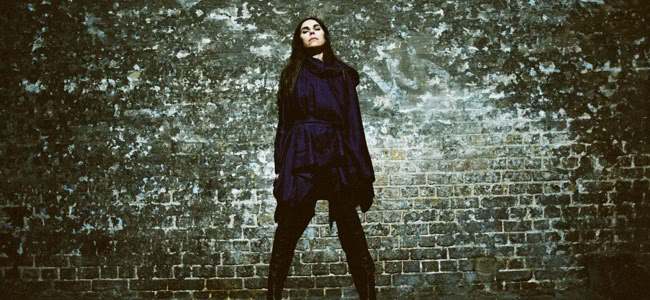The Hope Six Demolition Project is PJ Harvey’s 9th studio album, released five years after her widely acclaimed and Mercury Prize Winning Let England Shake.
The album was written, lyrically at least, between 2011 and 2014, when Harvey and photographer/filmmaker Seamus Murphy made trips to Kosovo, Afghanistan and Washington DC. Whilst Murphy took photos, Harvey kept a journal of the places, stories, and people they encountered. The end result is not only a new album, but also a companion book of poetry and photography, entitled Hollow of the Land.
Recorded over a month in Somerset House in London, the studio was a converted basement that once contained the gymnasium and rifle range for Inland Revenue Staff.
The recording sessions were part of an exhibition entitled ‘Recording in Progress,’ which invited the public to observe, via a one-way window, the album being made.
Harvey, along with her band and long time producer Flood, recorded the album under the watchful eye of the public, a process surely out of the comfort zone of the notoriously reserved Polly Jean.
The album title is a reference to the Hope VI projects in Washington DC, a run down public housing area with notoriously high crime rates. When the area was demolished to make way for better quality housing, the current residents were effectively evicted, no longer being able to afford to live there, leading to accusations of social cleansing.
Washington Post journalist Paul Schwartzman gave Harvey and Murphy a tour of the area, with much of his observations and words the basis for album opener ‘Community of Hope.’
The first single, and album highlight, ‘The Wheel’ is joyous and upbeat. The percussion, handclaps and catchy horn line make a musically engaging backing for the vocal answer and response.
The upbeat nature of the music contradicts the darker subject matter, a story which Harvey wrote during her time in Kosovo. The backing vocals repeat ‘I heard it was 28,000,’ a reference to either the number of NATO troops sent in to try and restore peace, or the number of children thought to have been lost during the Kosovo conflict. The outro line suggests it is the latter, repeating over and over ‘…and watch them fade out.’
‘The Ministry of Social Affairs’ begins with an old blues sample, one of a number of tracks that use samples and ambient recordings to create atmosphere. The slow shuffling drums provide constant momentum, whilst the rest of the song rhythmically devolves behind a wild and manic saxophone solo. The chorus line sings ‘that’s what they want, oh yeah, money honey,’ building a level of tension which never really gets released.
‘A line in the Sand’ finds Harvey’s high and somewhat timid falsetto singing ‘enough is enough, a line in the sand, seven or eight thousand people killed by hand,’ the vocal delivery contrasting the subject matter. ‘The Ministry of Defence’ is musically abrasive and angry, the melody once again provided by the backing vocals, singing such striking lines as ‘They’ve sprayed graffiti, in Arabic, and balanced sticks, in human shit.’
The Hope Six Demolition Project is musically sparse, repetitive, full of low end percussion and layered deep register backing vocals. Intentionally focused around the lyrics, the voice is always the main focus.
The album is really effective at putting the listener alongside Harvey as she wanders through the slums of Washington DC, or the war torn streets of Afghanistan. The stories are concerning, tragic, and yet told with an air of detachment. There is not effort to make comment, or put forth an opinion, on the story being told.
Whilst the album may not contain the subtle beauty of Let England Shake, it is still a fantastic album. Musically varied and interesting, it is at times beautiful, at times abrasive, and always done in a way that enhances the story being told. The contrasting texture of Harvey’s voice against the layered male backing vocals is used frequently and to great effect.
Is it enough, though, to allow fans to establish a deeper emotional connection with the stories therein? Or will they inevitably drift back to Let England Shake, or more likely still, Stories from the City, Stories from the Sea.

































